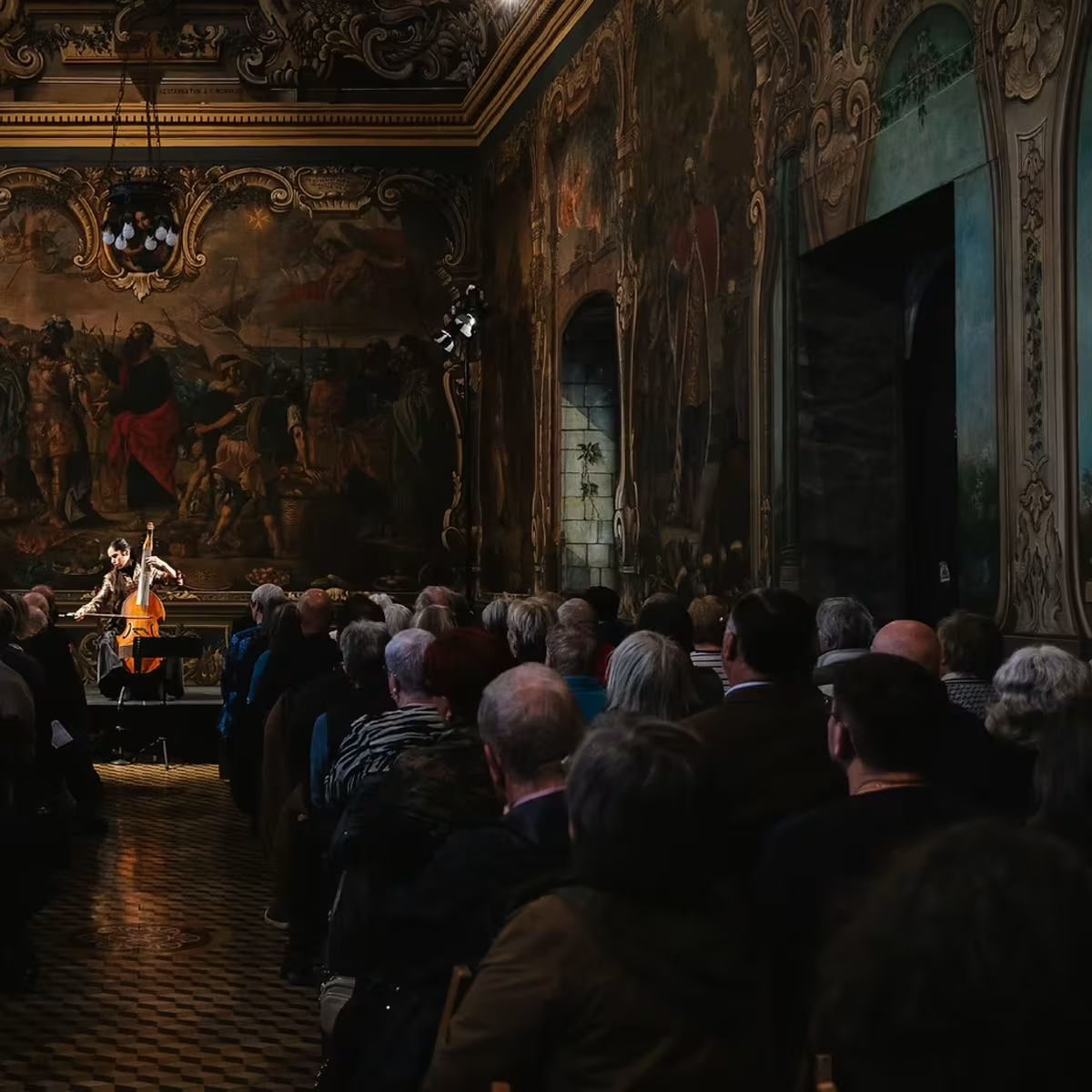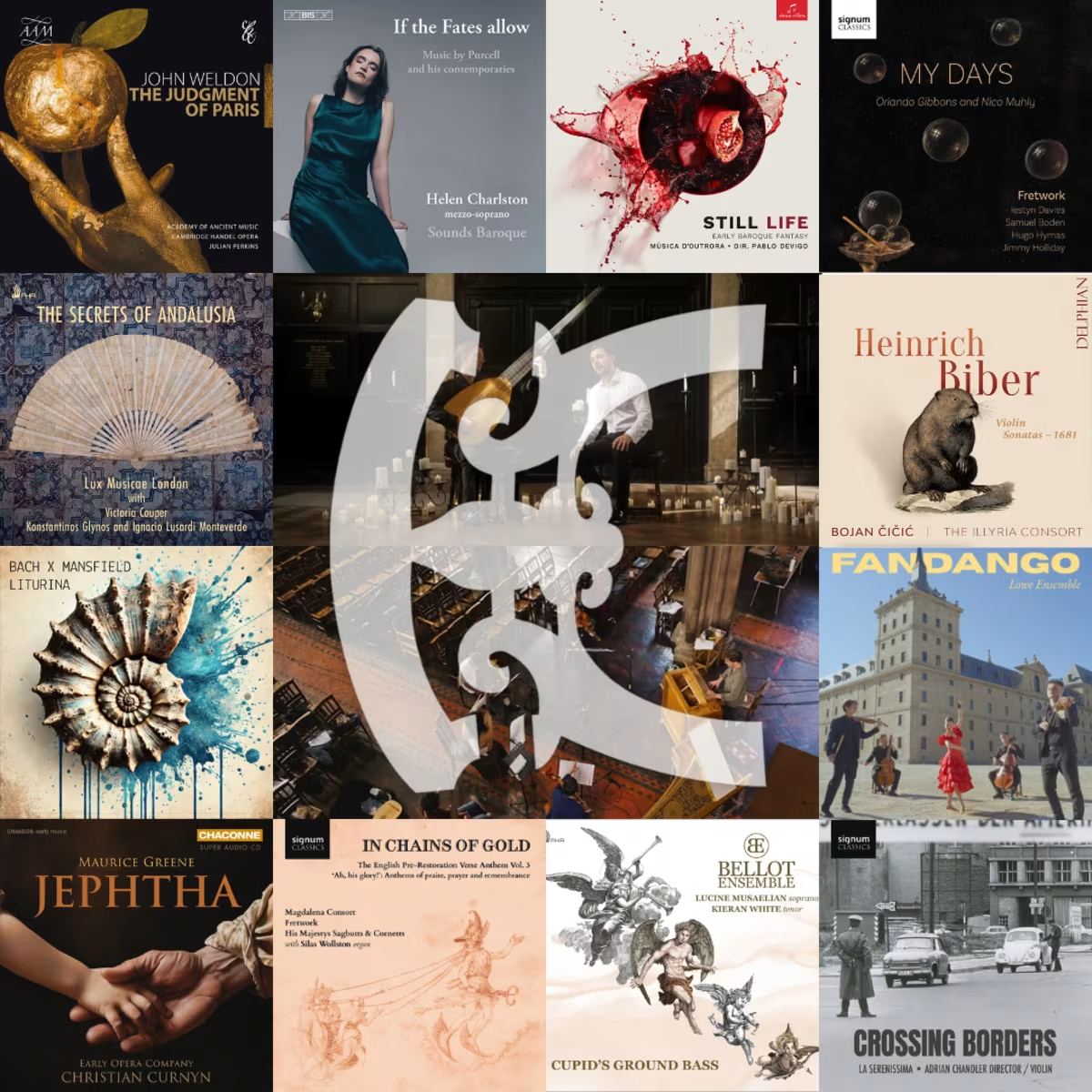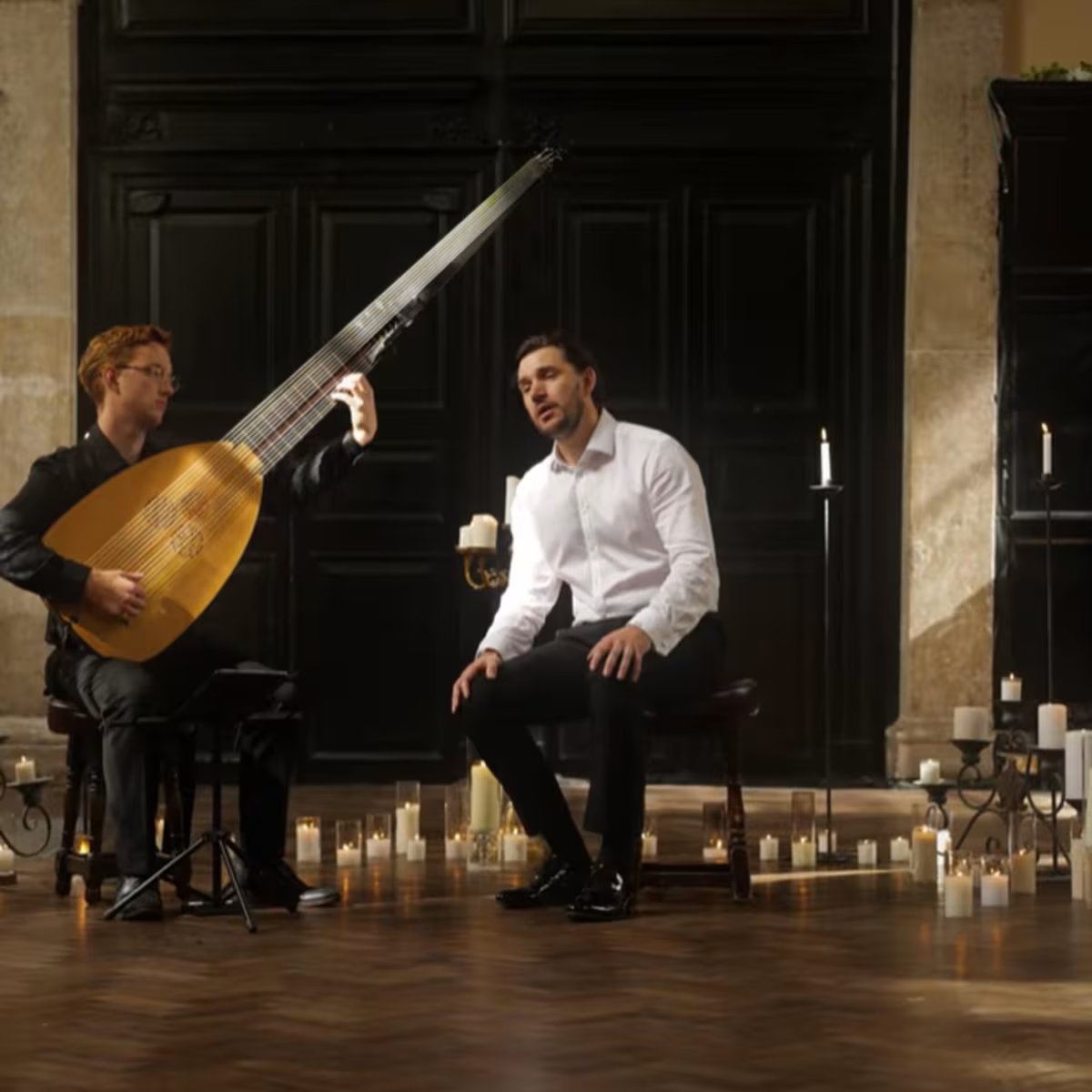Feature
Christopher Monks and Armonico Consort
A Good Restaurant and A Great Concert Need The Same Recipe
Share this

The Armonico Consort has been performing, directed by Christopher Monks, since 2001. It is primarily a choir with its own period instrument band of between six and thirty players as required. Originally centred in and around Warwick, most of its outreach work and 25% of concerts take place in central England. The majority, though, are these days spread around the UK and increasingly across Europe. “We've begun working with Spanish and other European promoters,” Christopher says, pointing to the development of work on Handel's Israel in Egypt for 2025.
Although they decided in 2008, following the financial crash, that the risks of performing full opera regularly were too great, Armonico Consort does still take on oratorio. In January, they will release, for Signum Classics, the first-ever recording of Daniel in the Lion's Den (Il Daniele nel Lago de' Leone) by Francisco Scarlatti, brother of Alessandro and uncle of Domenico, who spent the latter half of his life in London and Dublin. The autograph score has been languishing in the archives of the Fitzwilliam Museum. Last year, they also recorded his Dixit Dominus and Mass for 16 voices, which Christopher says is an amazing work—“supersize polyphony”—and he cannot understand why it is not much better known. They have spent much of the last year trying to right that wrong by touring it.
Excerpts from Armonico Consort's tour, The Forgotten Scarlatti.
“I don't put on anything I would not want to go to,” he insists. In the coming weeks, they will be turning their attention to a tour of a performing version of Purcell's The Fairy Queen, with the music supplemented by a script narrated by the wine specialist, writer, and TV presenter Oz Clarke. “We've been working with him for about 10 years.” Christopher says that Oz is instantly recognisable to audiences and that the worlds of food and music performance are parallel. “I realised early on that running a restaurant and putting on a concert are identical. They are all about balancing the finest ingredients and getting the surroundings perfect. In performance, we need to look at playing with emotions, smells, the theatrical side, lighting—all the things that impact the audience's experience.”
“We did Fairy Queen twenty years ago with a youth theatre, circus, and trapeze—performing the music end to end in the standard edition. It made no sense. Unless you approach Purcell with bawdy Shakespearean honesty, it doesn't work. I really wanted to revisit it.” The scriptwriter for this tour of Fairy Queen is his regular collaborator, William Towers, whom he met at university. “He gets the performance dynamics. He has rewritten it so that it takes the elements from the Shakespearean story of A Midsummer Night's Dream that make sense in the context of Purcell's music, which we have re-ordered slightly and with cuts to the bits that Purcell wrote just so the scenery could be moved around.”
The other side, and these days just as substantial, of Monks' and Armonico Consort's work is with children's choirs. “We always want to find ways to include young people in what we do, even if it is often only a workshop on the day of the performance.” It is a commitment he says he shares with (and has been inspired by) Paul McCreesh's work with the Gabrieli Consort (see the recent interview with Paul in these pages). “In a way, I am trying to do the same as Paul but with younger school kids. I believe that unless you have them hooked by 13, they won't be, and are too often lost to classical music and the wider benefits of singing.” Through the AC Academy, their programme now reaches about 15,000 children each year, and in 2024, they performed Carmina Burana at the Royal Albert Hall with the Orchestra of the Swan and 2,500 children. The academy has seeded over 300 choirs in and after school hours, has a training and mentoring scheme for young people with exceptional voices, and, for adults, has helped start workplace choirs.

The activity is not limited to the UK either. Over the last few years, they have developed a strong relationship with Kenya. In Nairobi, Monks started working with a relief organisation based at a medical centre. Now, that has expanded to choir-building projects with seven different institutions working with children traumatised by conflict, homelessness, or who are simply vulnerable. “They are trying to get them off the street to somewhere safe.” The process is not just one-way either. The AC Academy has been working with young children in this country on African songs to introduce them to different traditions of singing and movement, which they have brought to performance this month at The Warwick Arts Centre, Octagon Yeovil and The Lighthouse Arts Centre in Poole, Dorset.
A theme is emerging among early music organisations this decade. So many were started as initiatives by a few individuals as they graduated from universities and conservatoires, needing to give themselves an identity and work. That resulted in recording projects and expanded into large-scale performances. But, naturally, many of their members are also educators, and the music business is by nature international. Early music people are, in a secular sense, evangelists—not only for forgotten music or its performance style but for music as a fundamental part of life: a human right. Amidst all the political, economic, and climatic gloom, organisations like Armonico and others covered recently by Continuo Connect suggest all is not lost.
Their Supersize Polyphony 2 programme toured Great Malvern, Warwick, Poole, and Wells from 24 January to 7 February 2025.
Armonico Consort's recording of Scarlatti: Dixit Dominus Mass is available to purchase on Signum Records and available to stream on Spotify.
Author: Simon Mundy
Share this
Keep reading

Baroque in the sun: Malta’s January escape
The 14th edition of the Valletta Baroque Festival brings rare music to palaces, churches and theatres in Malta throughout January.

The Continuo Collection | 2025 Albums
A curated selection of tracks from the 12 recordings supported by Continuo Foundation which were released in 2025.

Bellot Ensemble | Monteverdi: ‘Oblivion soave’
Tenor Kieran White, joined by Daniel Murphy on theorbo, performs Arnalta’s aria, ‘Oblivion soave’ from Monteverdi's ‘L’incoronazione di Poppea’.



